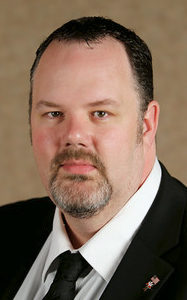By Father Chris Weber
In a recent editorial published by the Quad-City Times, Keith Soko, a professor in the Theology Department at St. Ambrose University, argues that the solution to the scourge of clergy sexual abuse in the Catholic church is a matter of changing the church’s doctrines to fit the times.
It’s hard to blame Soko for wanting to pin the blame for clergy sexual abuse on the church’s teachings. We all wish we could point to a single issue, some particular, circumscribed thing that we could fix in order to make the problem go away. The problem with this line of reasoning, however, is that it’s just too simple.

For example, Soko suggests that the first step to fixing the issue would be changing church discipline to allow for married priests. But if clergy sexual abuse is a byproduct of clerical celibacy, how do we explain a recent Houston Chronicle (Feb. 10, 2019) investigation’s finding that over 380 Southern Baptist Church leaders have been accused of sexual misconduct in the last 20 years? None of them were bound to celibacy.
Soko goes on to recommend that the church change her moral teaching on matters such as human sexuality, divorce and abortion. By that logic organizations with less “outdated” doctrine, or better yet, no doctrine at all when it comes to these issues, should be immune to sexual abuse. And yet, just this past summer the Chicago Tribune (July 27, 2018) found that between 2011 and 2018 there were more than 230 credible accusations of sexual abuse against children by employees of the Chicago Public School System. Are we to blame this latest horror on “medieval” doctrine as well?
Mind you, I don’t call attention to these stories in order to divert attention away from failures within the Catholic church. Revelations of abuse that have come to light in recent years have been painful to confront. But thanks to the courage of untold numbers of survivors who have come forward over the past two decades, the church has made significant strides both to address past wrongs and to prevent future abuse.
Mandatory background checks and safe environment training for employees and volunteers, extensive psychological screening for potential candidates for ordination, and a commitment to swift action and transparency in dealing with any new allegations of abuse have made the church a safer place. Recent revelations, however, have shown us that we still have work to do.
Instead, these stories show us that the issue is far too complicated to be solved by attacking the church’s teachings. The only single issue we can point to when it comes to sexual abuse in the church is sin. Soko would have us believe that the solution to clergy sexual abuse is changing the church’s doctrines. But the doctrines Soko wants the church to change are not mere human inventions. They are a part of the deposit of faith, entrusted to the church by God for the very purpose of helping people confront sin and find freedom in Jesus Christ.
The documents of Vatican II refer to the church as the “universal sacrament of salvation.” In other words, the church is the sign that both points to and makes Christ visible here on earth. To change the church’s teachings to fit prevailing secular notions of right and wrong would be to remake the church in our own image. Jesus Christ founded the church to help us come to faith in him. I for one am in no hurry to remake it in anyone else’s image — not mine, and most certainly not Soko’s.
(Fr. Chris Weber is a priest of the Diocese of Davenport.)











